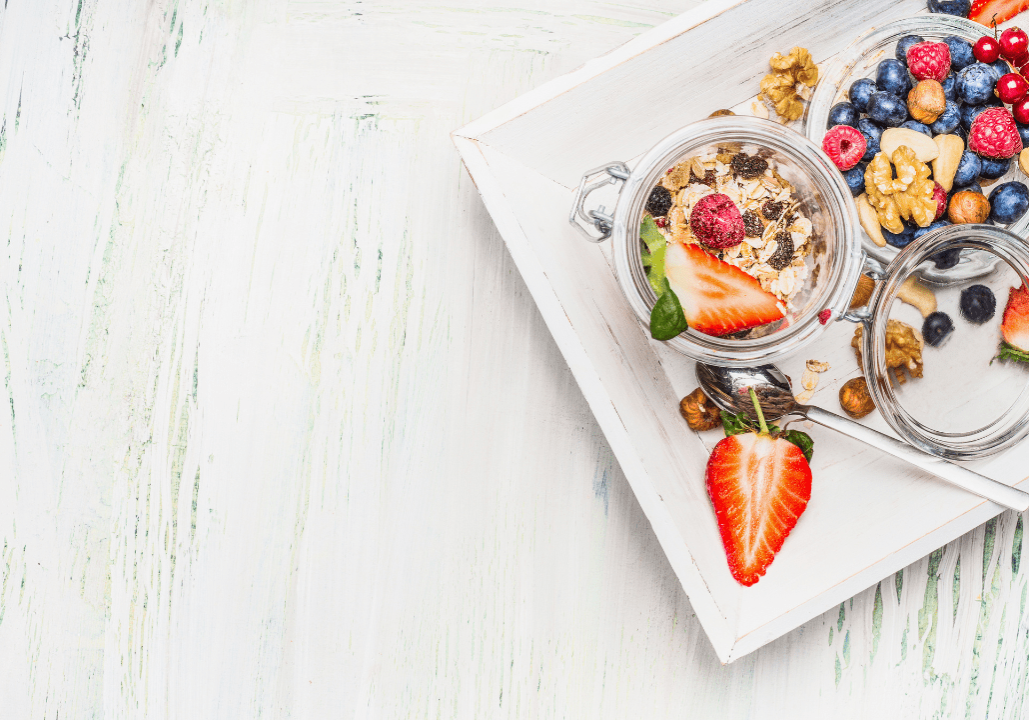
Beat the afternoon slump
6 expert tips to beat the mid-afternoon slump and power through the day. By Jenaed Brodell
Struggling to sustain your energy throughout the day? You’re not alone. According to recent figures one in eight Brits feel tired all the time. But what can we do about this unrelenting fatigue? Here, consultant Performance Dietitian Jenaed Brodell shares six simple steps to sustain your energy throughout the day to stay at the top of your game, from tailored food intake to controlling your caffeine consumption.
Tiredness is often regarded as a fact of life, but it’s actually far from normal and can be related to issues such as stress, sleep problems and poor diet. If not dealt with effectively, tiredness and fatigue can have a profound effect on your performance and productivity.
“When energy levels are low, your performance suffers in a number of ways,” says Brodell. “We experience decreased motivation and concentration and can make silly mistakes that impact our productivity. Whether trying to build a business, take your workout to the next level, or just get by on six hours sleep a night, we could all benefit from improving our energy levels.
Simple lifestyle changes including dietary interventions, or the use of a high-quality caffeine tablet can help to boost our energy levels, driver performance, and increase productivity.” Often, people experiencing relentless tiredness and fatigue feel like there’s no escape – but there is, Brodell reckons. By incorporating just a few of these steps into your daily routine, you can help to increase your energy, motivation, and performance.
1. Try not to skip breakfast
A healthy, balanced breakfast will help fuel your mind, body, and performance throughout the day. Despite this, up to a third of us regularly skip breakfast according to the British Dietetic Association. Go for healthier options with a combination of high fibre carbohydrates and protein such as porridge made with berries, nuts and seeds. This will ensure steady blood sugar release throughout the day as well as promoting satiety (fullness). If you can't face eating as soon as you get up, take a snack to eat on the go, such as a banana and yoghurt or a well-balanced smoothie with yoghurt, milk, and fruit.
2. Eat small, frequent meals
Where energy is the issue, it's better to eat small meals and snacks every few hours than three large meals a day. This approach can reduce your perception of fatigue because your brain, which has very few energy reserves of its own, needs a steady supply of nutrients. Some people begin feeling sluggish after just a few hours without food, but it doesn't take much to feed your brain, a piece of fruit with some yoghurt or a few nuts is adequate.

3. Focus on getting 6-10 hours of sleep
Sleep is just as critical to our body as other basic functions of survival like eating, drinking, and breathing. The body has multiple systems regulating our sleep-wake cycle and our journey through the cycle of sleep stages. These processes work together to ensure we get deep, restful sleep, and have energy throughout the day.
Lifestyle choices such as the decisions we make relating to our diet, can impact these systems for better or for worse.
4. Cut down on sugar
Because different kinds of foods are converted to energy at different rates, some — such as sweets and chocolate — can give you a quick lift, while others — such as whole grains and healthy unsaturated fats — supply the reserves you'll need to draw on throughout the day. Limit the refined sugar to only when you are experiencing a craving and not because of boredom or stress. While you may get a quick boost, that feeling fades quickly and can leave you depleted and craving more.
5. Use caffeine strategically
Whether you struggle to get into gear in the morning or suffer from the dreaded mid-afternoon slump, caffeine can help to increase alertness and sharpen your mind. Caffeine is an incredibly well-researched performance enhancer with a greater effect when consumed in its ‘anhydrous’ or more concentrated state, such as a caffeine tablet, as compared to coffee. Research shows that caffeine can boost your productivity and performance at work. For longer-lasting energy, try supplements containing specially designed slow-release caffeine, which helps to prolong caffeine’s stimulating effects without the associated negative after-effects, such as unwanted highs or lows.

6. Hydration is key
Hydration is one of the most important, and often overlooked, considerations in overcoming tiredness. Even mild dehydration can cause fatigue and exhaustion, impacting your ability to concentrate and even make tasks feel more difficult. If you feel as though your energy levels are flagging, one of the best things you can do is reach for a glass of plain old water — the NHS recommends that we try to drink between 1.5 and 2 litres of water a day.
Jenaed Brodell is a leading specialist consultant dietitian and founder of Nutrition and Co (nutritionandco.co.uk). She provides evidence-based, easy-to-follow, practical advice on how to reach peak performance. She also advises a company who supports Pro Plus, a range of caffeine-based energy products; whilst she does not endorse products, she provides commentary on the active ingredients found within their range.




